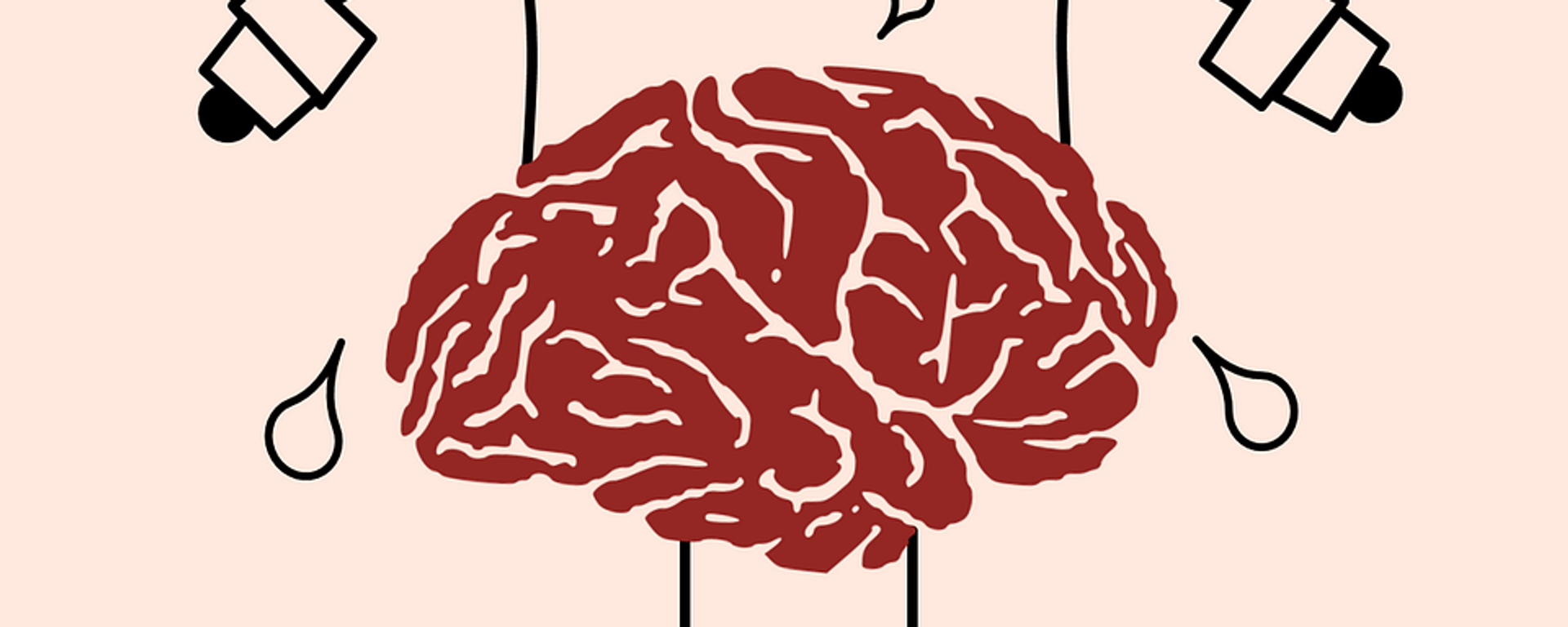https://sputnikglobe.com/20230520/miracle-pills-to-fight-zombie-cells-tech-gurus-lavish-funds-on-longevity-studies--1110484977.html
Miracle Pills to Fight 'Zombie Cells': Tech Gurus Lavish Funds on Longevity Studies
Miracle Pills to Fight 'Zombie Cells': Tech Gurus Lavish Funds on Longevity Studies
Sputnik International
Repurposed prescription drugs might potentially be transformed into miracle pills, offering people a way to turn the tide on the aging process, researchers believe.
2023-05-20T15:06+0000
2023-05-20T15:06+0000
2023-05-20T15:06+0000
it
openai
youth
jeff bezos
anti-aging
aging
longevity
peter thiel
https://cdn1.img.sputnikglobe.com/img/105859/75/1058597587_0:0:1920:1080_1920x0_80_0_0_b128d9241359c12b8c603d5e511f3de9.jpg
Repurposed prescription drugs could potentially be transformed into miracle pills, offering people a way to turn the tide on the aging process. At least this is what biohackers and a host of wealthy tech gurus believe.As we witness artificial intelligence (AI) make immense strides to ostensibly alleviate the burden of challenges facing humankind, longevity research is trying to keep apace, hoping to discover a way to cheat death, or at least slow down the pace of aging for humans.With the world population slowly but surely aging, increasingly more cash interventions are being generously doled out by the likes of US entrepreneur Jeff Bezos on longevity studies. Some of those seeking youth opt for fitness routines, healthy diets, and supplements, while others are prepared to dabble in prescription drugs that are deemed as showing promise in fending off the approach of old age.Tech titan Sam Altman, the 38-year-old CEO of OpenAI, the company that created ChatGPT, not only adheres to a vegetarian diet and dutifully exercises, but reportedly takes a diabetes drug called metformin. Altman is also said to have invested $180 million in Retro Biosciences, an anti-aging biotech company. Altman was quoted as saying that longevity research urgently requires an "OpenAI-type effort" to give it a much-needed boost. Jeff Bezos in 2021 helped fund Altos Labs, a start-up dealing with “rejuvenation” science. German-American billionaire entrepreneur, co-founder of PayPal, Peter Thiel also funneled funds into Unity Biotechnology, a company researching drugs to target aging cells. But how safe are these pills that are being singled out as possible "game-changers" in the anti-aging campaign?Metformin, rapamycin, and resveratrol are among the three drugs being touted as anti-aging candidates.Metformin falls into the category of "senomorphics," typically used to treat age-related diseases and disorders. This drug is billed as likely able to take on aging cells known as senescent cells. These are cells that people accumulate as they age. The old, worn-out cells have one typical characteristic feature – they lose the ability to make new cells, but do not die, lingering inside the body. The result is often “inflammatory compounds.” Such cells have the unflattering nickname of "zombie cells," and are blamed for age-related diseases, like Alzheimer's, arthritis, heart disease, as well as kidney and lung problems. Scientists have long been holding out hope that getting rid of these cells would also allow to slow down aging.Rapamycin is a prescription medication that helps regulate the immune system, and is a go-to when treating tumorous cancers. It also prevents organ rejection in kidney transplant patients, and coats stents implanted in patients suffering from heart disease.The polyphenolic compound resveratrol can be found in various plants, like grapes, and has long made a name for itself as associated with health benefits. These include antioxidant, cardioprotective, neuroprotective, and antitumor effects.Furthermore, a selection of already existing drugs could ostensibly be "repurposed" into novel drug combinations called "senolytics," scientists claim, tailored to chase away "zombie" cells. Still, amid this ongoing research, more testing should be carried out to determine that such drugs could be deemed safe for use by everybody, Dr. James Kirkland, researcher at Mayo Clinic, was cited as telling media. Kirkland, who has been testing the cancer drug dasatinib in conjunction with the plant compound quercetin on mice, underscored that, "these drugs aren't something the general public should be taking." He laid emphasis on common approaches such as age-appropriate exercise routine and a diet regimen as also conducive to reducing the "senescent cell burden."
https://sputnikglobe.com/20220529/throw-that-apple-awayworlds-oldest-man-says-glass-of-liquor-a-day-is-secret-to-long-life-1095854620.html
https://sputnikglobe.com/20220201/from-workouts-to-red-peppers-how-to-keep-your-brain-healthy-1092654907.html
Sputnik International
feedback@sputniknews.com
+74956456601
MIA „Rossiya Segodnya“
2023
News
en_EN
Sputnik International
feedback@sputniknews.com
+74956456601
MIA „Rossiya Segodnya“
Sputnik International
feedback@sputniknews.com
+74956456601
MIA „Rossiya Segodnya“
reverse aging, longevity studies, repurposed prescription drugs, to turn the tide on aging, biohackers, tech gurus, metformin, rapamycin, resveratrol, anti-aging candidates, senomorphics, age-related diseases
reverse aging, longevity studies, repurposed prescription drugs, to turn the tide on aging, biohackers, tech gurus, metformin, rapamycin, resveratrol, anti-aging candidates, senomorphics, age-related diseases
Miracle Pills to Fight 'Zombie Cells': Tech Gurus Lavish Funds on Longevity Studies
Not everyone is willing to accept the fact that aging is a natural part of human life. Biohackers have long been on the warpath against cells that contribute to shortening the lifespan, seeking out scientific and drug-related methods to crack the code of living forever.
Repurposed prescription drugs could potentially be transformed into miracle pills, offering people a way to turn the tide on the
aging process. At least this is what biohackers and a host of wealthy tech gurus believe.
As we witness artificial intelligence (AI)
make immense strides to ostensibly alleviate the burden of challenges facing humankind, longevity research is trying to keep apace, hoping to discover a way to cheat death, or at least slow down the pace of aging for humans.
With the world population slowly but surely aging, increasingly more cash interventions are being generously doled out by the likes of US entrepreneur Jeff Bezos on longevity studies. Some of those seeking youth opt for fitness routines, healthy diets, and supplements, while others are prepared to dabble in prescription drugs that are deemed as showing promise in fending off the approach of old age.
Tech titan Sam Altman, the 38-year-old CEO of OpenAI, the company that created
ChatGPT, not only adheres to a vegetarian diet and dutifully exercises, but reportedly takes a diabetes drug called
metformin. Altman is also said to have invested $180 million in
Retro Biosciences, an anti-aging biotech company. Altman was quoted as saying that longevity research urgently requires an "
OpenAI-type effort" to give it a much-needed boost.
Jeff Bezos in 2021 helped fund
Altos Labs, a start-up dealing with “rejuvenation” science. German-American billionaire entrepreneur, co-founder of PayPal, Peter Thiel also funneled funds into
Unity Biotechnology, a company researching drugs to target aging cells.
But how safe are these pills that are being singled out as possible "game-changers" in the anti-aging campaign?
Metformin, rapamycin, and resveratrol are among the three drugs being touted as anti-aging candidates.
Metformin falls into the category of "senomorphics," typically used to treat age-related diseases and disorders. This drug is billed as likely able to take on aging cells known as senescent cells. These are cells that people accumulate as they age. The old, worn-out cells have one typical characteristic feature – they lose the ability to make new cells, but do not die, lingering inside the body. The result is often “inflammatory compounds.” Such cells have the unflattering nickname of "zombie cells," and are blamed for age-related diseases, like Alzheimer's, arthritis, heart disease, as well as kidney and lung problems. Scientists have long been holding out hope that getting rid of these cells would also allow to slow down aging.
Rapamycin is a prescription medication that helps regulate the immune system, and is a go-to when treating tumorous cancers. It also prevents organ rejection in kidney transplant patients, and coats stents implanted in patients suffering from heart disease.
The polyphenolic compound resveratrol can be found in various plants, like grapes, and has long made a name for itself as associated with health benefits. These include antioxidant, cardioprotective, neuroprotective, and antitumor effects.
Furthermore, a selection of already existing drugs could ostensibly be "repurposed" into novel drug combinations called "senolytics," scientists claim, tailored to chase away "zombie" cells.
Still, amid this ongoing research, more testing should be carried out to determine that such drugs could be deemed safe for use by everybody, Dr. James Kirkland, researcher at Mayo Clinic, was cited as telling media. Kirkland, who has been testing the cancer drug dasatinib in conjunction with the plant compound quercetin on mice, underscored that, "these drugs aren't something the general public should be taking." He laid emphasis on common approaches such as age-appropriate exercise routine and a diet regimen as also conducive to reducing the "senescent cell burden."

1 February 2022, 08:39 GMT



